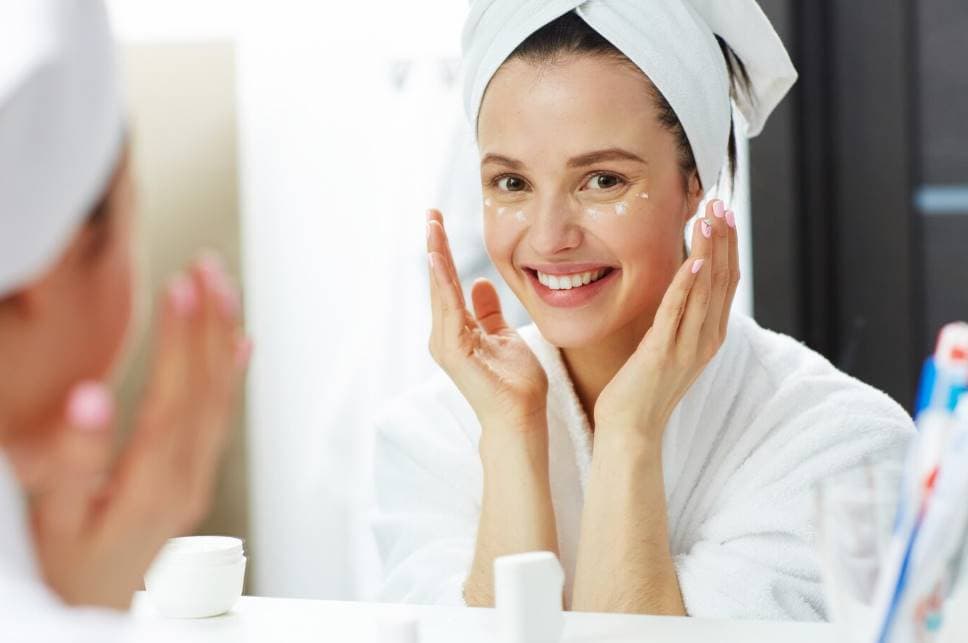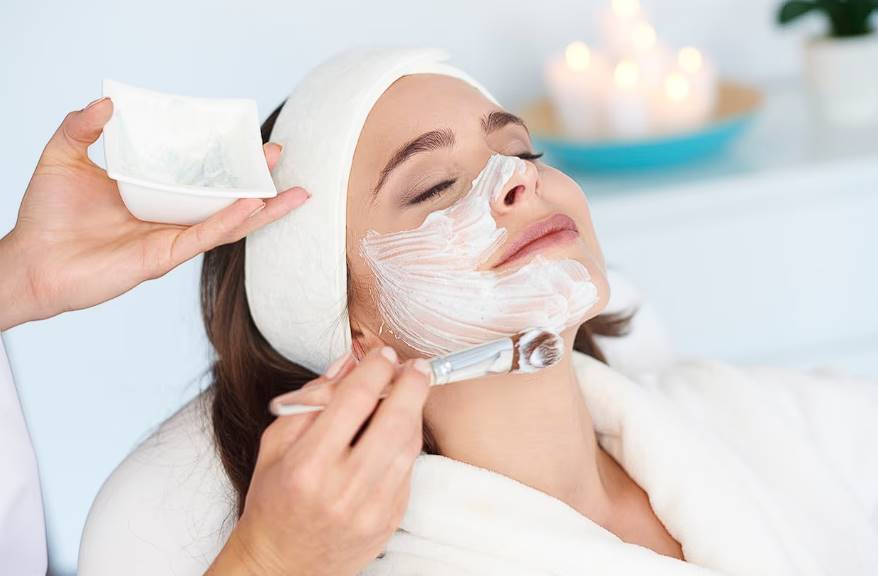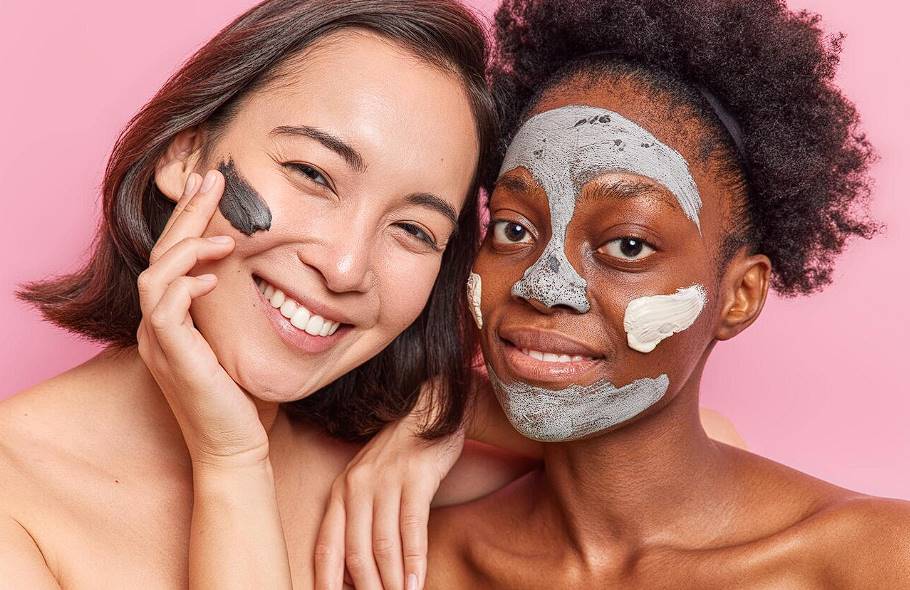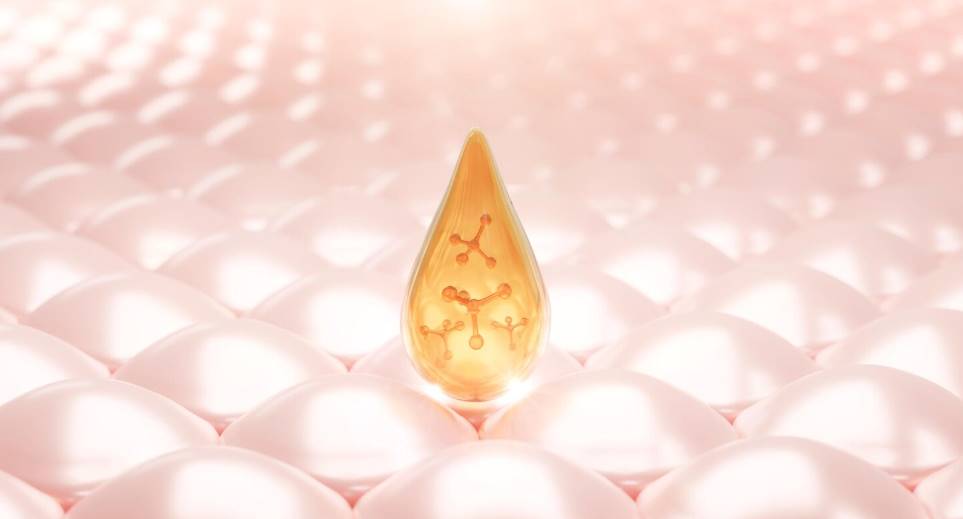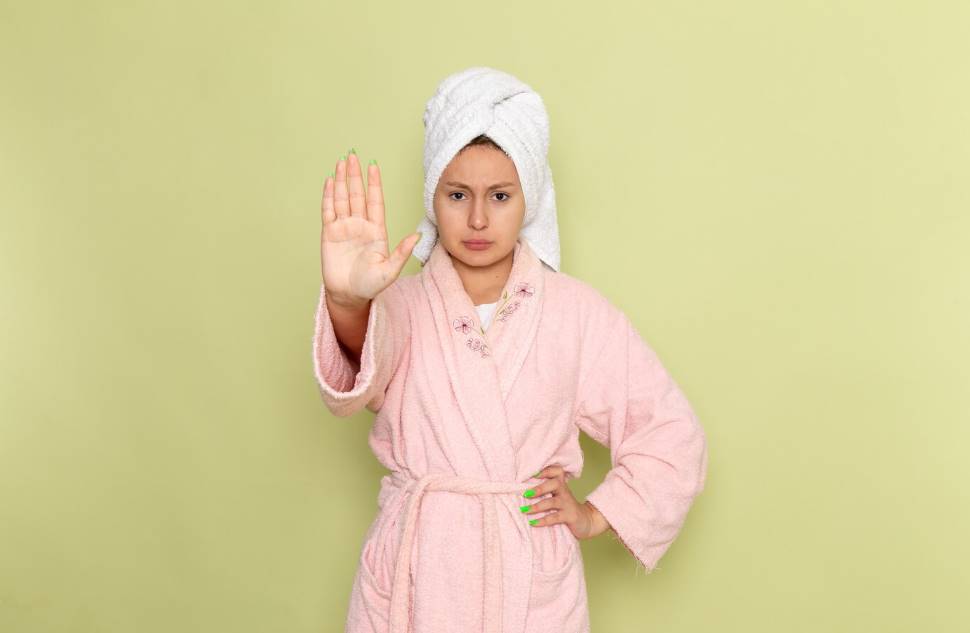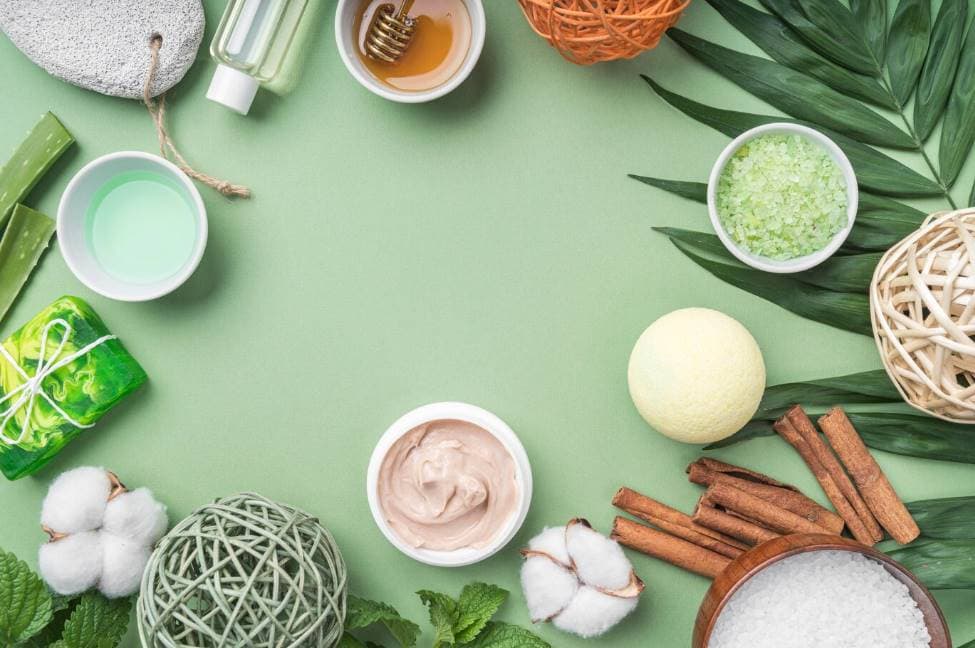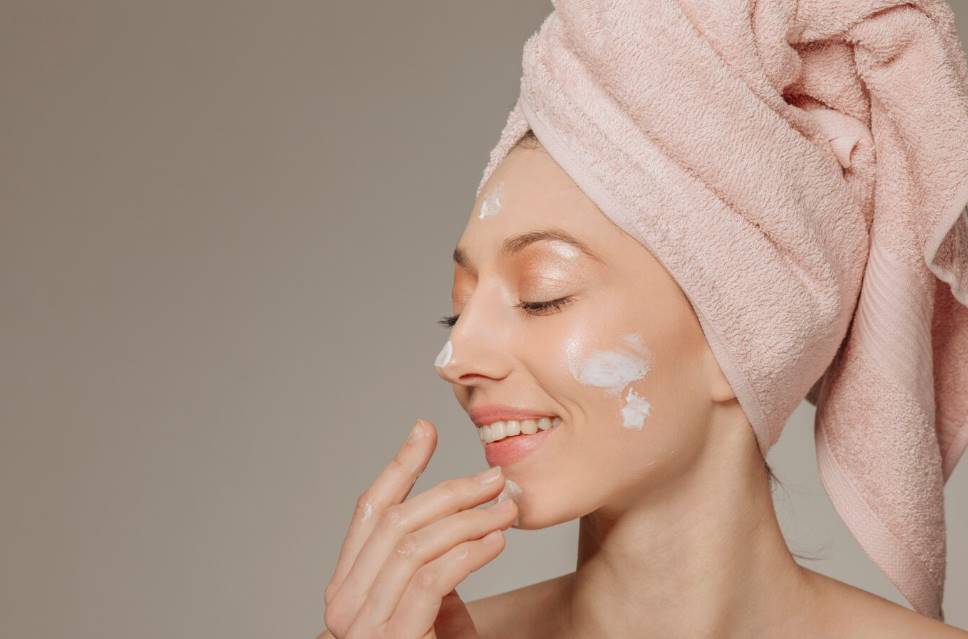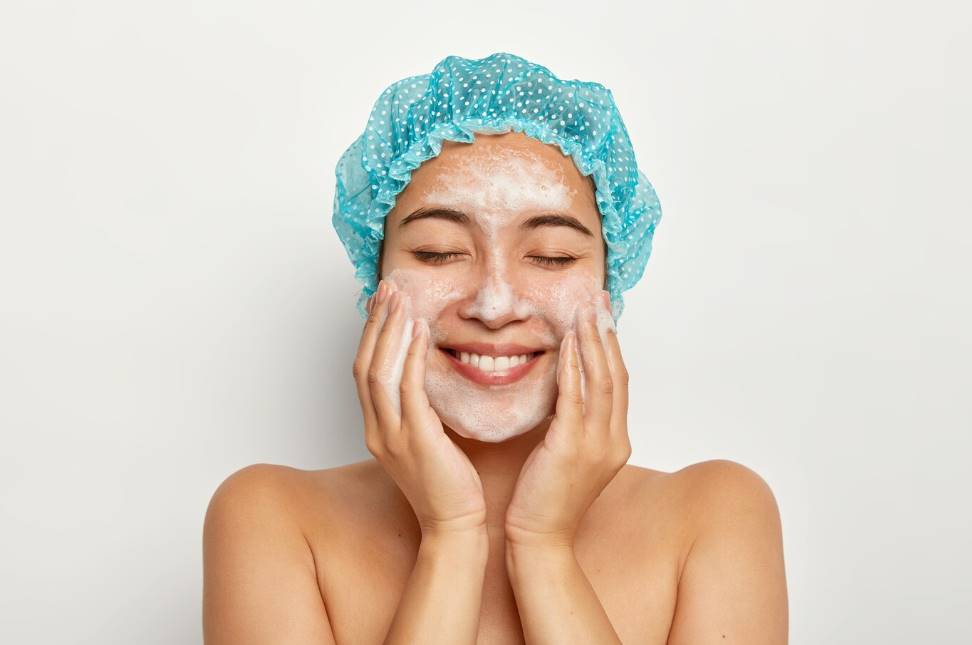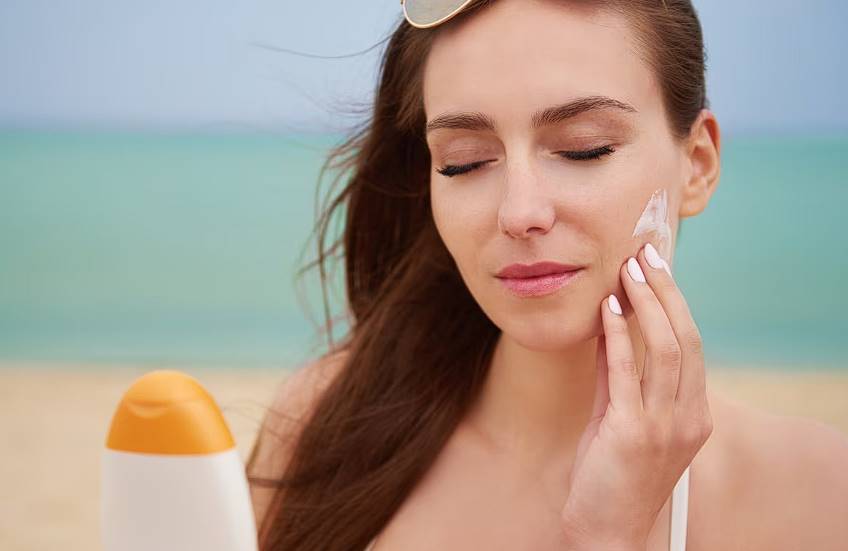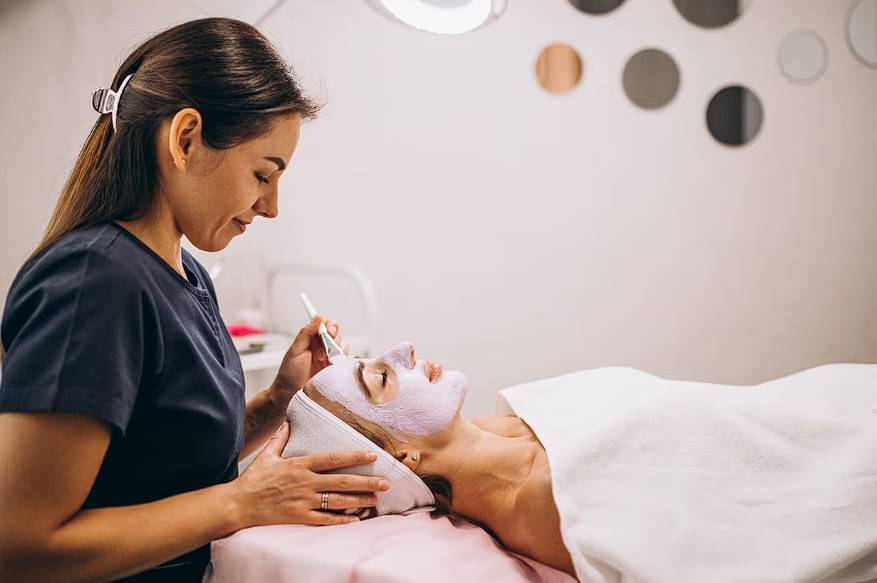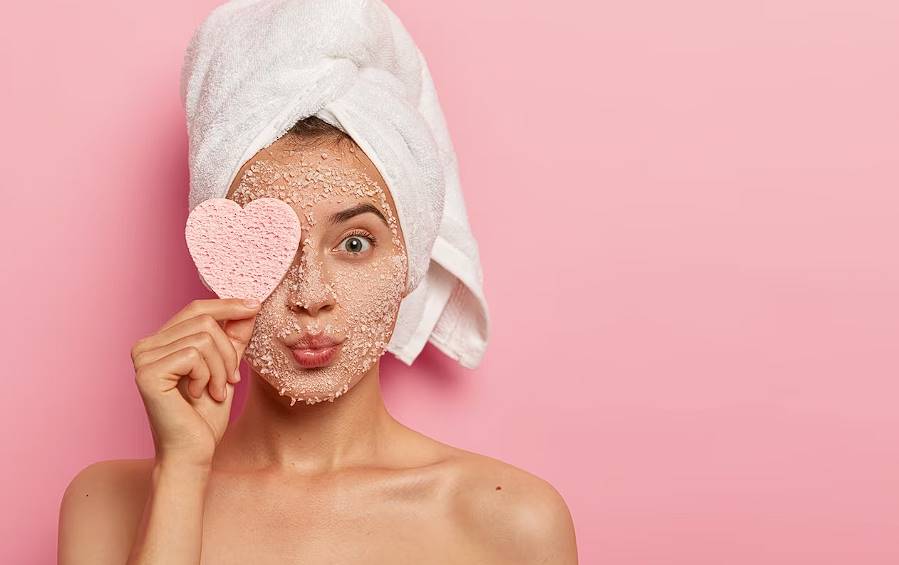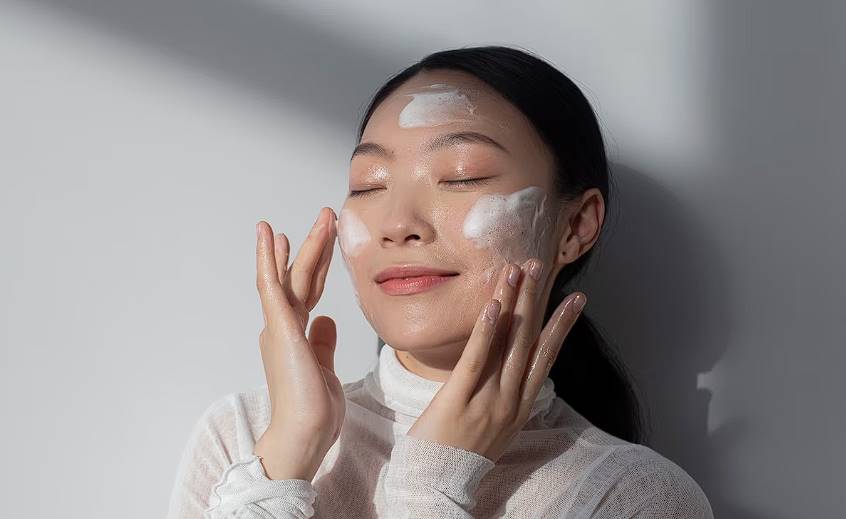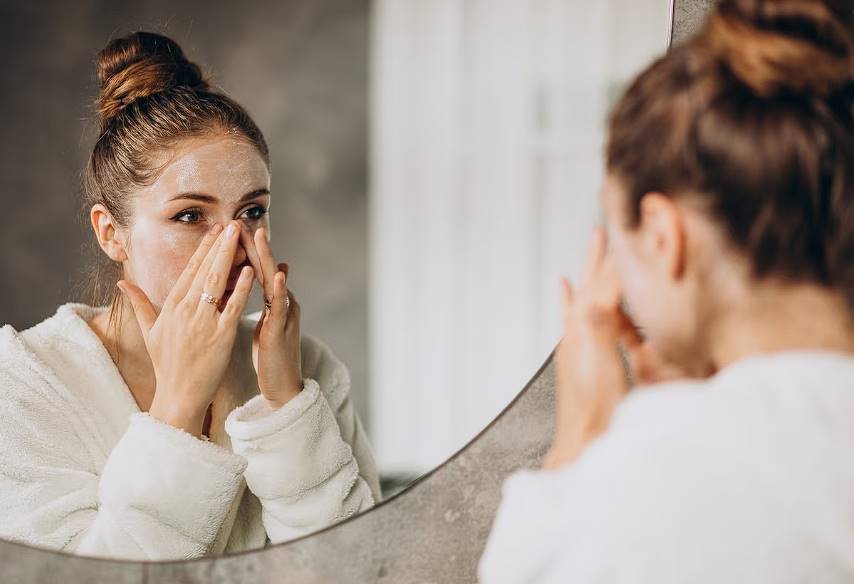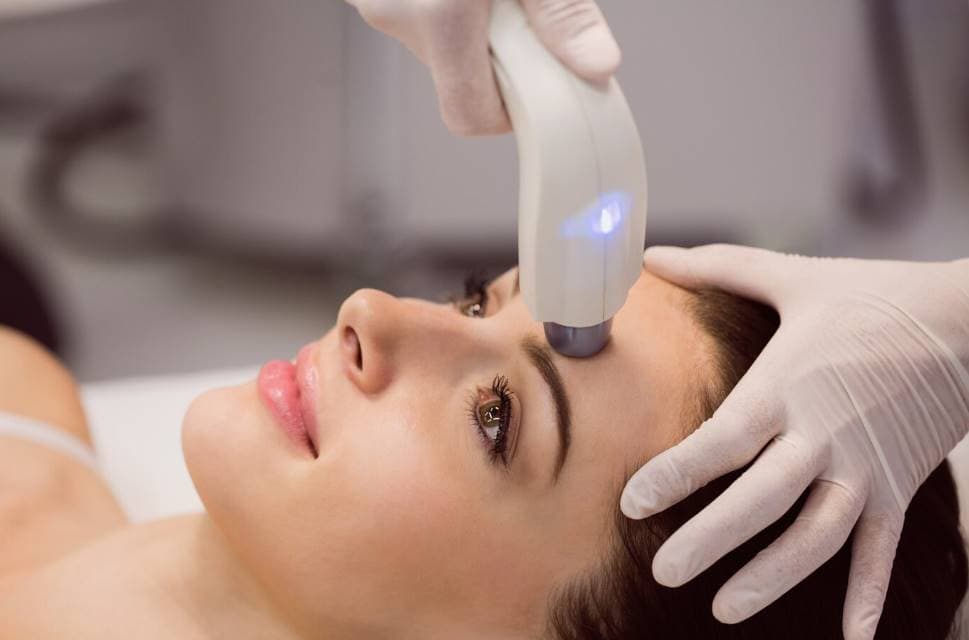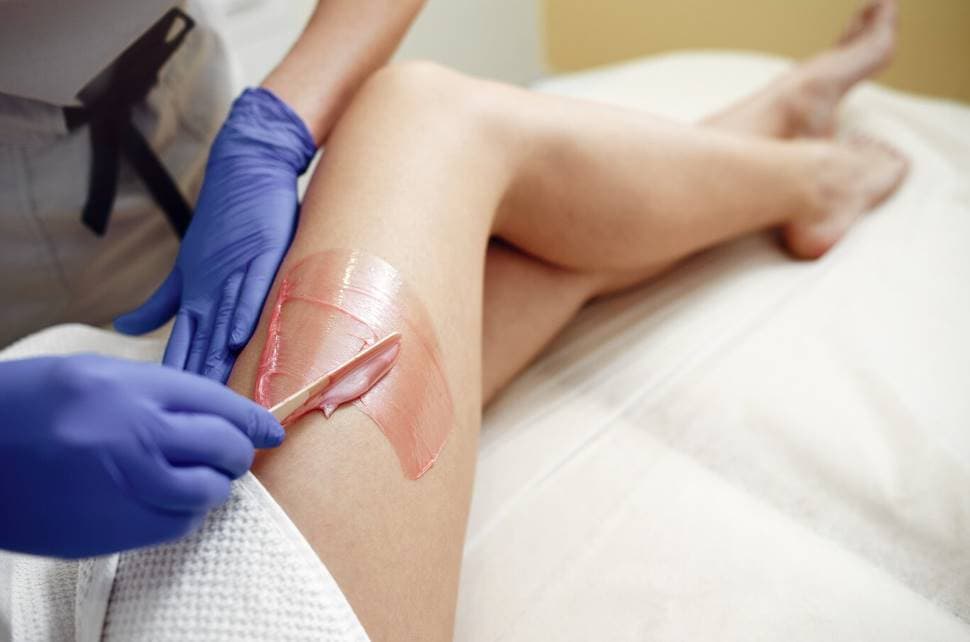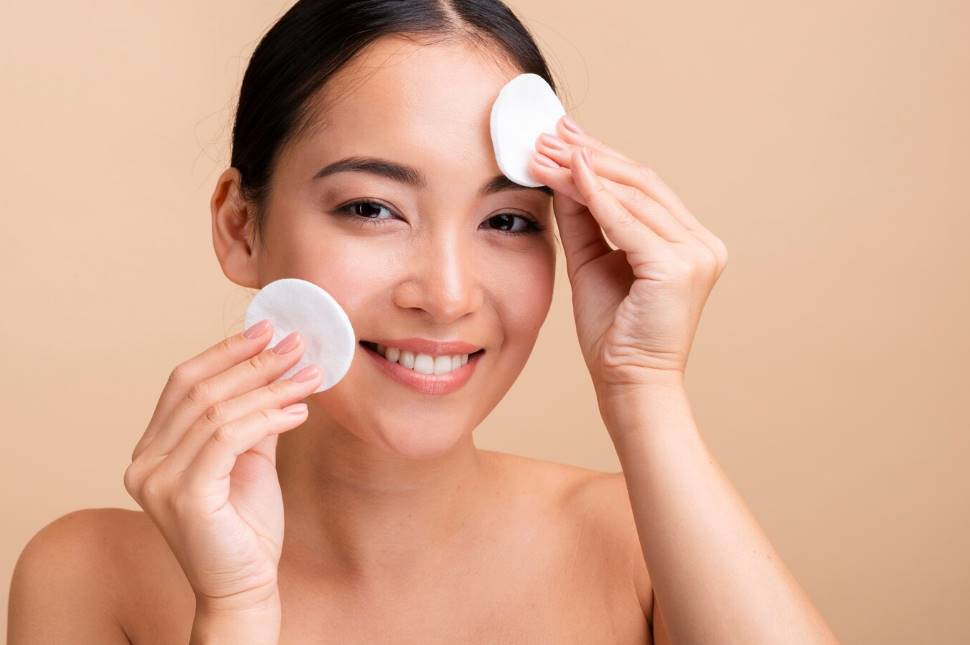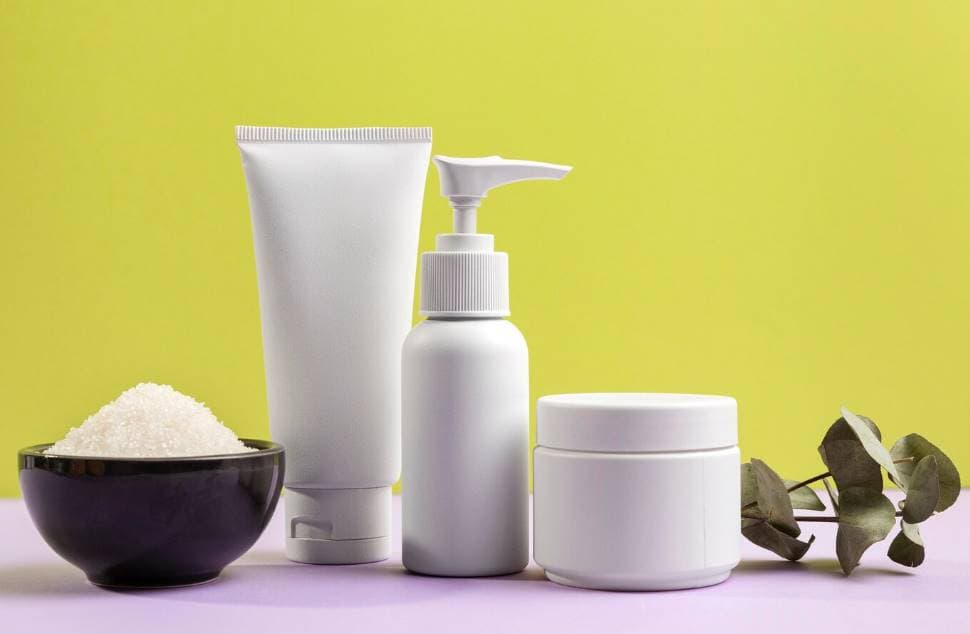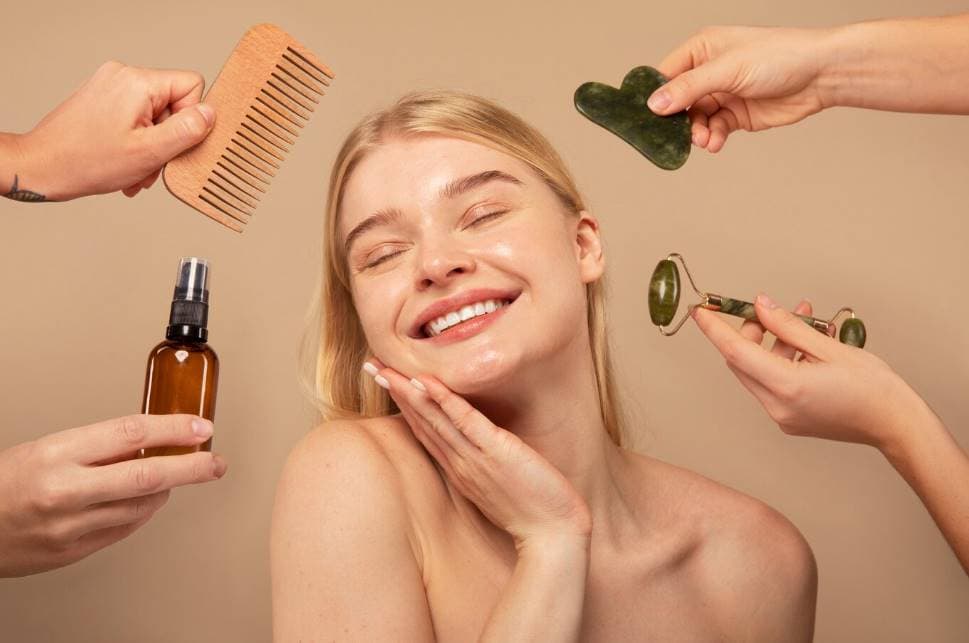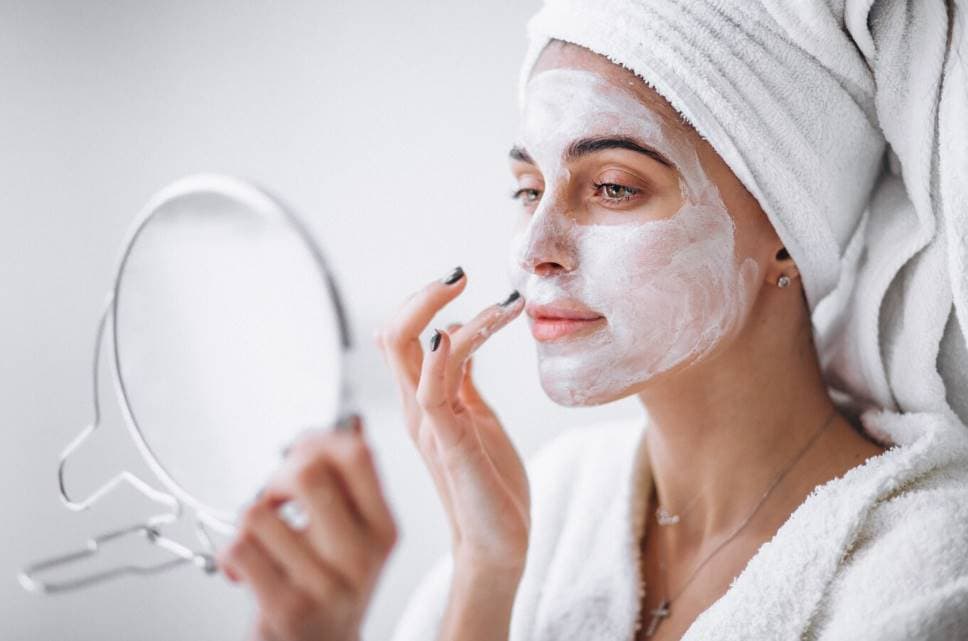There is a plethora of conflicting information accessible in the realm of skincare, both online and from friends and family. It's important to dispel the beliefs that can get in the way of good skin care. Have no fear. It's not only you who is struggling to cope. These skincare myths cause more harm than good by encouraging ineffective practices.
Do you think chocolate will cause breakouts? You may have been applying multiple layers of thick moisturiser with the hope that it will delay the onset of wrinkles. They may lead you astray from methods that will give you the healthiest skin possible. This article provides reliable advice on how to maintain healthy skin. We will dispel common myths and provide accurate information to help you make educated decisions about your skin's health and appearance. Learn the facts and dispel the myths about skincare together.
Skincare Myths
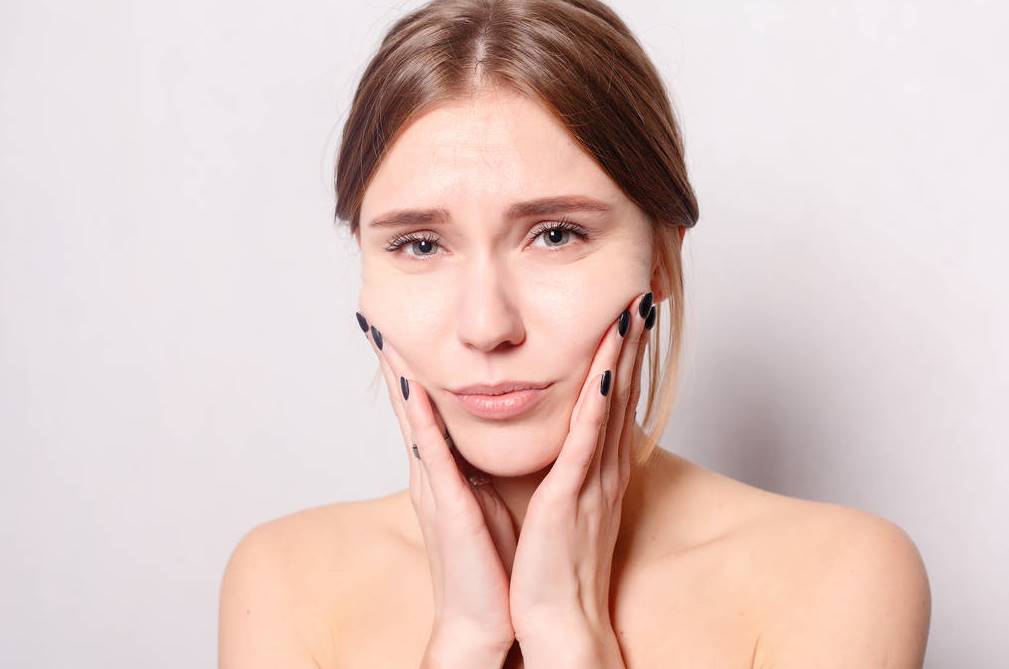
Myths About Oily Skin
Many people with oily skin believe unfounded beauty myths that can hinder their efforts to control their skin's oil production.
Myth 1: Oily Skin Types Do Not Require Moisturiser.
This is a common misconception about this appearance type. Oily skin, contrary to popular belief, nevertheless requires adequate hydration. For oily skin to compensate for the lack of moisture, oil production may increase when water intake is restricted.
Myth 2: You Do Not Need Sunscreen For This Skin Type.
Even people with greasy skin should always use sunscreen. Some people with oily skin may not bother with sunscreen because they believe their skin oil is sufficient protection. But protecting ourselves from UV radiation and avoiding long-term damage is much easier using sunscreen. An oil-free, non-comedogenic sunscreen protects your skin from the sun without clogging your pores.
Myth 3: Excessive Cleansing May Decrease Oiliness.
It's a prevalent myth that excessive washing and scrubbing would eliminate this skin issue. However, dryness and rebound oiliness can result from washing the skin. To keep your skin clean and fresh without over-drying, you only need to cleanse it twice a day using a mild, oil-free cleanser.
Myth 4: Moisturising Oils Are Not Needed For This Skin Type.
Some face oils, though counterintuitive, can help oily skin. Oils like jojoba and grapeseed oil, which are light and non-comedogenic, can feed the skin without clogging the pores and help maintain a healthy oil production balance. Face oil is a great addition to any skincare routine when used sparingly, as it helps keep the skin's natural oil production in check.
Myth 5: It Is Best To Avoid Makeup.
Makeup is generally considered unsuitable for people with this skin condition, which is another frequent misconception. However, with the appropriate cosmetics and application methods, you may reduce shine and achieve a matte appearance. Look for solutions that don't clog pores or contain oil and last all day. A primer made for oily skin can help you achieve a smooth base and extend the wear of your makeup.
Myths About Dry Skin
There are a lot of misconceptions and aesthetic myths about dry skin. Let's clarify some of the confusion surrounding this issue by dispelling common misconceptions.
Myth 1: Dull Skin Can Be Cured By Increase In Water Intake.
While it's true that staying hydrated is important for your health, it won't help your dry skin in particular. Applying moisturisers and utilising hydrating skincare products are vital since they address the root cause of the problem: dryness in the skin's outermost layer. Even while it's good for you, drinking extra water won't help your skin retain moisture or prevent dryness.
Myth 2: Regular Exfoliating Will Eliminate Dryness.
Dead skin cells are removed during exfoliation, resulting in smoother skin. However, it can be exacerbated by exfoliating too frequently or too roughly, which can cause further irritation and dryness. Choose gentle exfoliants formulated for sensitive skin, and limit exfoliation to once or twice weekly.
Myth 3: Hot Showers Or Baths Can Solve This Skin Issue.
Comforting as hot water may feel, it makes things worse. The skin's protective oils are washed away by hot water, worsening dryness and irritation. If you must bathe, use lukewarm water and limit your soak time. Applying a moisturiser while still damp from a shower or bath is the best way to hydrate your skin.
Myth 4: Additional Moisturiser Application Will Immediately Fix Rough Skin.
The moisturiser is necessary for dry skin, but using too much of it has no long-term benefits. Selecting and consistently applying a moisturiser formulated for your skin type is essential. Hyaluronic acid, ceramides, and glycerine are all good examples of moisturising substances to seek out. In arid areas, a humidifier can add moisture to the air and aid in the prevention of dehydration.
Myth 5: It Is Bad To Use Heavy Or Oily Skincare Products.
Using solely light or oil-free products of this type is a common mistake. It can benefit greatly from certain oils and heavier creams. Ingredients like shea butter, jojoba oil, and almond oil are all great examples of nutritious ingredients to search for. These can aid in restoring moisture and forming a barrier on the skin to stop additional moisture loss.
Other Popular Skincare Myths
You Don't Need Sunscreen If It's Not Sunny.
Even if clouds block some of the sun's rays, ultraviolet light can still damage your skin.
- Sunburn is still possible, even on a cloudy day, so take precautions. Sun damage, including age spots and wrinkles, will appear over time if you don't take precautions.
- Even on cloudy days, it's important to protect your skin from the sun by applying sunscreen or a moisturiser with at least SPF 15.
Vitamin E Helps Scars Fade Away.
- There has been a widespread misconception that Vitamin E helps reduce the appearance of scars for at least a century. Despite widespread claims to the contrary, there is currently no reliable scientific proof that Vitamin E aids in scar healing.
- The best thing to do to get rid of a scar or make it look better is to schedule an appointment with a doctor or dermatologist.
The Higher The SPF, The Better.
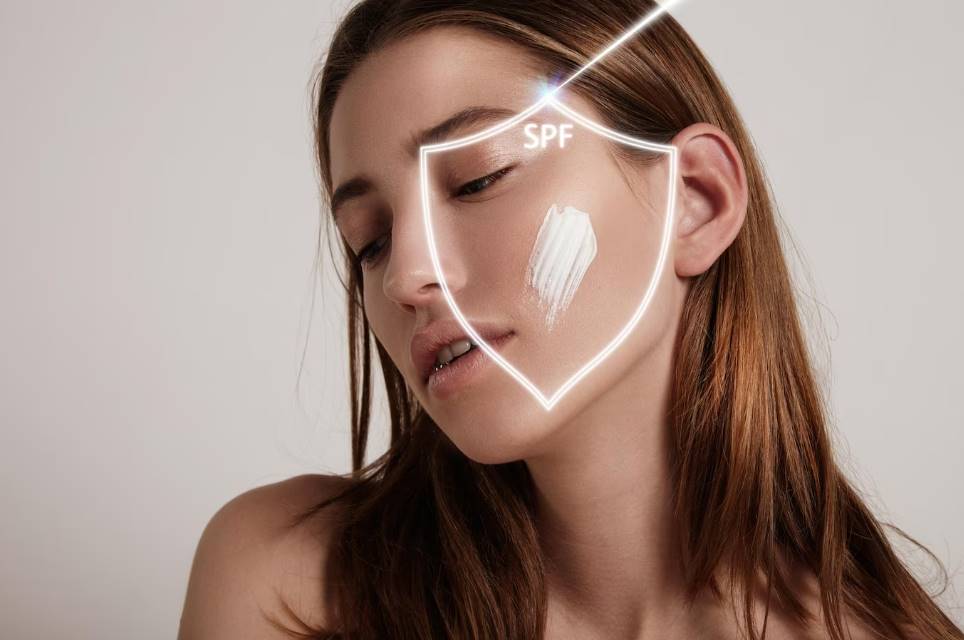
- The more massive, the better. This is not necessarily the case concerning SPF. Above SPF 30, a higher SPF has little additional benefit. You should know that sunblock with an SPF of 30 will prevent 97% sun damage to your skin. Therefore, you only need to wear anything higher than a baseball cap if you plan on being out in the sun for longer than four hours.
Either "Natural" Or "Chemical-Free" Is Better.
- Natural products are only sometimes the greatest option because they don't work for everyone's skin. Dermatological products contain substances that are necessary for the treatment of some skin types and disorders. Furthermore, natural products are far more susceptible to the growth of mould and germs than synthetic ones.
- Visit a pharmacy specialising in dermatology to look through available products. If you opt for all-natural remedies, check the expiration dates on your goods to avoid putting your skin at risk from mould.
It Is Best To Exfoliate More.
- It is a common misconception that regular exfoliating is beneficial for the skin. It would help if you regularly exfoliated your face to keep it looking fresh and healthy. You're wrong! Exfoliating too often might damage your skin's protective barrier, leaving it more vulnerable to infections, inflammation, and free radicals.
- Depending on one's skin type, various degrees of exfoliation are acceptable. While some people's skin can manage weekly exfoliation, others may only tolerate once-a-day scrubs. If you want to know how much exfoliation your skin needs, observe how it reacts.
Sleeping With Makeup Is Fine.
- We all know it's not ideal, but sleeping in your makeup is fine occasionally, right? Not! Sleeping in your makeup for even one night will mingle the day's grime and oil with your foundation, blush, and mascara. The result will be blocked pores and acne.
- Towelettes designed specifically for removing makeup and micellar water makeup removers are both simple options.
When You're Young, You Don't Need An Eye Cream.
- The skin surrounding your eyes will show signs of ageing 5-10 years before the rest of your face. Weakened by a lack of collagen, the fibres in this area easily tear when we laugh, scowl, or squint. Therefore, it is best to be proactive and take preventative actions against this aging indicator as early as possible.
- Fine wrinkles, puffiness, and dark circles around the eyes can be successfully reduced with the help of eye moisturisers containing collagen and hyaluronic acid. Applying it twice a day will maximise its effectiveness.
It Is Effective If It Burns.
- Some of your products may give you a mild stinging or tingling feeling. However, if you feel searing discomfort, stop using the product immediately. This could be an allergic reaction to one of the product's ingredients or a warning that the lotion is too harsh for your skin.
- You should see a dermatologist if the discomfort persists for over a few minutes.
Verifying The Accuracy Of Your Skincare Information
Being picky about skincare recommendations is especially important now when so much information is available. Here, we discuss why it's crucial to double-check the claims made about skincare products.
Finding Trustworthy Sources
Accurate and trustworthy advice is only possible with access to information from trustworthy skincare sources. Consider these things as you find trustworthy sources to help you with your skincare decisions. Experts in skin care, such as dermatologists and estheticians, are the best people to consult for advice. Their wisdom and expertise can be a great resource.
Finally, looking for information from reliable sources, such as universities, government health departments, and recognised skincare magazines, is important. These sites are committed to publishing only credible material, and their editorial standards reflect that.
Personal Experimentation's Role
While advice from reputable sources is helpful, finding the perfect skincare routine requires trial and error. Because everyone's skin is different, it's crucial to test new products on small areas of skin first. Applying a tiny product to a tiny bit of skin is called a "patch test," it's used to detect any allergic reactions. The majority of dermatologists advocate for twice-daily application for 7-10 days. This is useful for determining whether or not a product will react negatively with your skin.
You can learn more about your skin and its needs by experimenting. Therefore, you can modify your skincare regimen to meet the demands and preferences of your skin. Always keep in mind that there is no one best way to care for your skin. By experimenting with various methods, you can learn what works best for your skin and produces the desired outcomes.
What Skincare Works?
It is important to know skincare facts, not just the myths. Let's take a look at two variables that are crucial for effective skincare.
The Value Of Patience And Consistency
Maintaining a regular skincare routine is essential. It was challenging to develop an easy routine. If you stick to the same routine and the same products, your skin will adjust and respond better. Skincare is an ongoing process, so expecting fast results is unrealistic.
Be patient, and your skincare routine will pay off in the end. With time and effort, your skin can become noticeably healthier and more beautiful.
Knowing What Your Skin Type Is
Knowing your skin type is essential for making informed decisions regarding skincare. Different skin types—dry, oily, mixed, and sensitive—have distinct characteristics and require different treatments. Your skin type and any underlying issues can be identified with the help of a dermatologist or a professional skin analysis. You may tailor your skincare routine and product selections to your skin type now that you have this information. Taking these steps will allow you to maximise the benefits of your work.
Conclusion
Care for your skin is an ongoing process that needs patience and determination to get the results you want. Sunscreen with a higher Sun Protection Factor (SPF) is more important than a baseball cap because it can stop 97% of sun damage. Products that are natural or don't have chemicals in them are better for different skin types and are more likely to grow mould and germs. Exfoliating is important, but doing it too much can damage the protective layer of the skin. It's not a good idea to go to sleep with makeup on because it can clog your pores and lead to acne.
Young people don't need to worry about ageing around their eyes because the skin around their eyes will show signs of ageing 5 to 10 years before the rest of the face. Eye moisturisers with collagen and hyaluronic acid can help get rid of fine lines, dark circles, and puffiness. If the product makes you feel bad, stop using it right away.
It's important to check the accuracy of skincare information, and dermatologists and estheticians can be good places to look for help. Personal experimentation is also important because the best way to take care of your face is to try different things. Most dermatologists suggest using a product twice a day for 7 to 10 days to find out if it will hurt your skin.
To make good choices about skincare, you need to know what type of skin you have. Different types of skin have different qualities and need different treatments. Talk to a dermatologist or get a professional skin analysis to find out what type of skin you have. This will help you choose the right skincare practices and products.
Content Summary
- There's a wealth of misleading skincare information online.
- Not all skincare myths are beneficial; many can damage your skin.
- Chocolate isn't a guaranteed cause of breakouts.
- Layering thick moisturiser won't necessarily delay wrinkles.
- This article aims to debunk popular skincare myths.
- Oily skin myths can hamper proper skincare.
- Contrary to belief, oily skin does require moisturiser.
- Sunscreen is essential for oily skin types, too.
- Excessive cleansing can lead to more oiliness, not less.
- Some moisturising oils are suitable for oily skin.
- Makeup isn't strictly bad for oily skin; choose the right products.
- Dry skin myths often stem from misinformed practices.
- Drinking water alone won't solve dull, dry skin.
- Over-exfoliating can worsen skin dryness.
- Hot showers might exacerbate dry skin conditions.
- Using excessive moisturiser doesn't guarantee improved skin.
- Heavier skincare products can benefit dry skin.
- Sunscreen is vital, even on cloudy days.
- UV radiation can damage skin irrespective of the weather.
- SPF 30 sunscreen already offers significant sun damage prevention.
- Vitamin E's effectiveness for scars lacks scientific backing.
- "Natural" or "Chemical-Free" isn't always the best choice.
- Exfoliating too often can be harmful.
- Never sleep with your makeup on; it can cause acne.
- Eye cream is beneficial, even at a younger age.
- A product causing a burning sensation isn't necessarily effective.
- Always consult with professionals about adverse skincare reactions.
- Be discerning about where you get your skincare advice.
- Accurate skincare information is paramount for healthy skin.
- Trusted skincare sources provide the most reliable advice.
- Dermatologists are essential sources of skin-related information.
- Not all skincare myths are grounded in science.
- The skin's health and appearance require informed care.
- Inaccurate skincare beliefs can detract from optimal routines.
- Debunking myths is crucial for maintaining skin health.
- Sunscreen acts as a barrier against harmful UV rays.
- Some face oils can balance natural oil production.
- Gentle exfoliation can prevent skin irritation.
- Products with hyaluronic acid benefit dry skin.
- Always be cautious about skincare product ingredients.
- All-natural remedies might have shorter expiration dates.
- The skin around the eyes is particularly sensitive to ageing.
- Collagen and hyaluronic acid can reduce signs of eye ageing.
- Immediate discomfort from a product can signal an allergic reaction.
- The higher SPF isn't always proportionally more effective.
- Proper hydration involves more than just drinking water.
- Makeup removal is vital for skin cleanliness.
- Moisturisers are not a one-size-fits-all solution.
- Skincare routines should be tailored to individual needs.
- Dispelling myths can pave the way for better skincare decisions.
Frequently Asked Questions
Not applying moisturiser/product quickly enough after cleansing. If you aren't applying your moisturiser within one minute after cleansing, you aren't applying it at the right time. Your skin can get dehydrated quickly after cleansing, so it's imperative to apply moisturiser immediately, as it is still damp.
Aging, acne, eczema, warts, and rosacea can affect the look and feel of your skin—and your overall lifestyle! However, with a dermatologist's help, each of these common skin concerns can be managed. Only a dermatologist can properly diagnose your skin condition and offer the best treatment for your specific issue.
Signs of an allergic reaction, like rash; hives; itching; red, swollen, blistered, or peeling skin with or without fever; wheezing; tightness in the chest or throat; trouble breathing, swallowing, or talking; unusual hoarseness; or swelling of the mouth, face, lips, tongue, or throat.
Cutting back on products: Too many skin care products can damage the moisture barrier. The more things that come in contact with the skin, the more opportunity to disrupt the skin's pH balance, which leads to moisture loss and irritation.
Sun protection is the most important skincare product you can wear daily. It will look its best with protecting your skin first, no matter what other products you use. People of all ages should wear sunscreen regularly, even young children.
